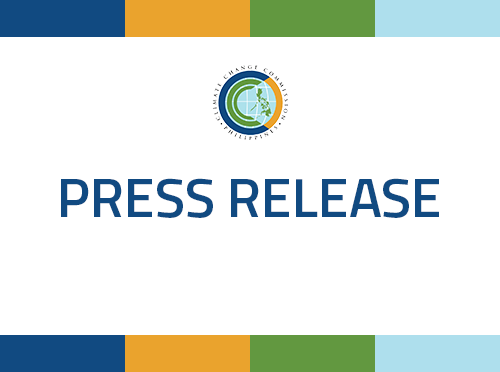
March 16, 2020 Monday

MANILA, 17 March 2020 — The Climate Change Commission (CCC) supported the government’s call for stringent public health measures amid the spread of the novel coronavirus disease (COVID-19) and stated that the urgent and decisive response of national and local authorities and the citizenry, as in a climate emergency, is needed to address the health crisis.
On Thursday, a day after the World Health Organization (WHO) declared COVID-19 as a pandemic, the Government of the Philippines raised the nation’s alert status to Code Red Sublevel 2, while also placing Metro Manila under “community quarantine” to minimize the spread of the disease. Community quarantine began at midnight of March 15 until April 14, 2020.
According to WHO, there are already 168,019 confirmed cases of COVID-19 and 6,610 related deaths in 146 countries. In the Philippines, the Department of Health (DOH) reported 142 cases (PH141 and PH142 subject for confirmation) with 12 deaths, as of this writing.
“Amid the alarming spread of COVID-19 in our country and in other parts of the world, we must cooperate with our public health and local government authorities and heed their advice to control the spread of the disease. As in a climate emergency, we must be resolute and resilient in responding to this public health emergency,” said Climate Change Secretary Emmanuel M. De Guzman.
Following directives from the national government, various local government units in Metro Manila are under community quarantine and have imposed curfew hours from 8:00pm to 5:00am.
Social distancing measures in public transportation are followed. Land and domestic air and sea travel in and out of the country’s capital are restricted. Skeleton staffing is adopted in government offices, and classes are suspended. Mass gatherings are disallowed.
Secretary De Guzman recalled that the country experienced a surge in dengue cases in early 2019, which could be an indirect effect of climate change. According to the Intergovernmental Panel on Climate Change in its Fifth Assessment Report, local changes in temperature, rainfall and humidity, and extreme weather, have altered the distribution of some disease vectors. He added that scientists are also studying now any possible links between COVID-19 and climate change.
“As global warming worsens, the risk for human infection from these diseases increases. Our public health system must be able to adapt to this phenomenon and to provide medical care to the increasing number of patients. Let us remain vigilant and resilient in these trying times,” De Guzman said.